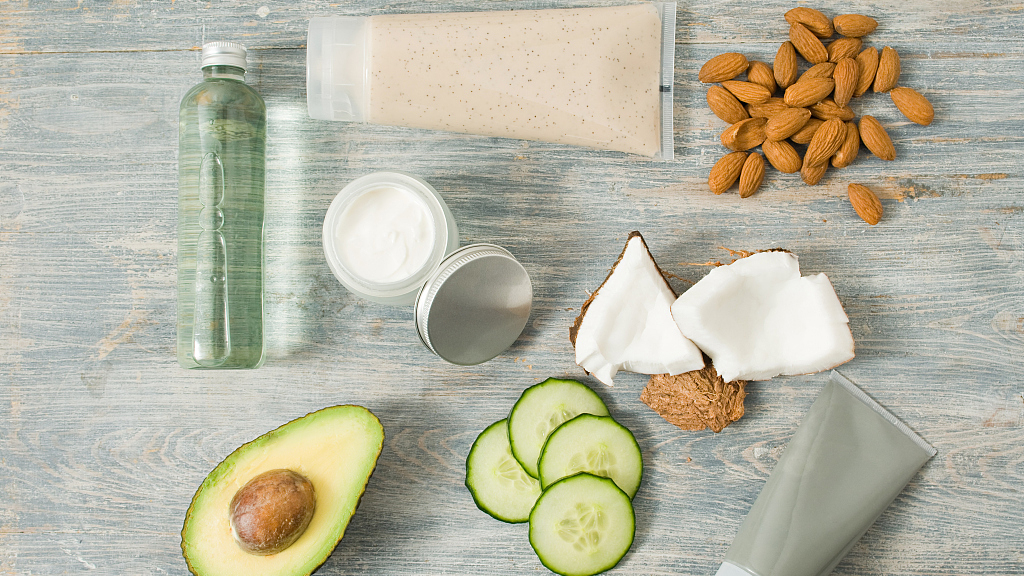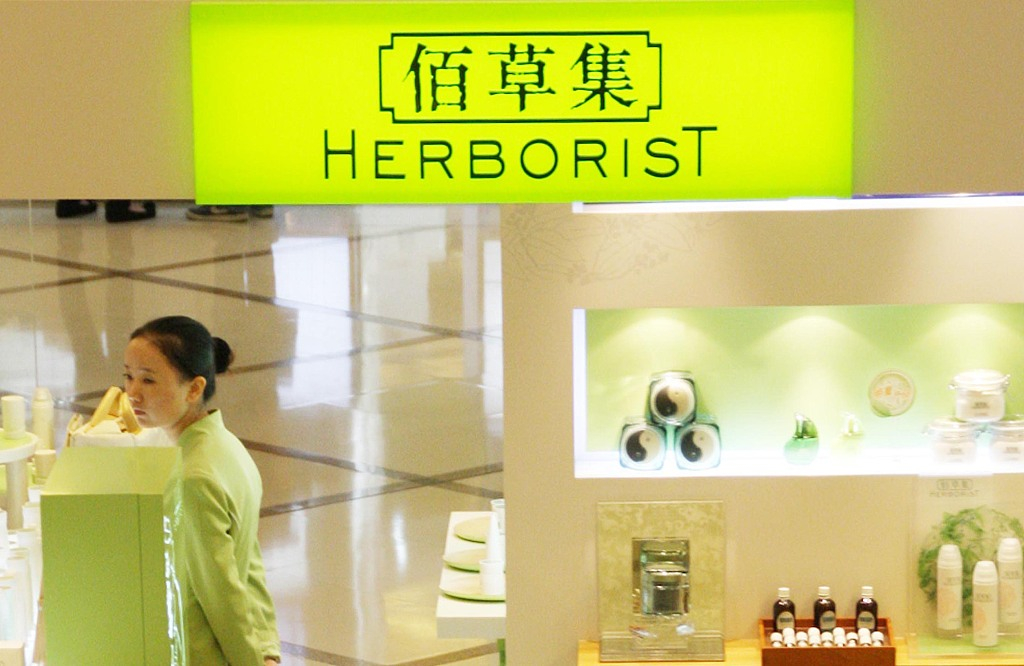

China's cosmetics market surpassed 262 billion yuan (about 38 billion U.S. dollars) in sales volume last year and cosmetics producers are looking to do even better in 2019 with the help of booming plant-based product sales.
Chinese domestic skincare brand Inoherb uses only plants as major ingredients of its products. The sales volume of its most popular product, rhodiola rosea serum, grew 10 times in 2018, compared to the previous year. The company said it has a very special crop of customers.
"Our consumers have a higher educational level and they have higher demands for effective products. They are aware of their skin conditions and know what problems they need to solve," said Lv Zhi, vice president of Inoherb.
Inoherb is far from being the only skincare brand that's using natural plant products to attract consumers. Smaller sized Dr. Plant and Forest Cabin have been flourishing as well. It turns out that Chinese consumers are very conscious about the ingredients they put on their skin and many believe "pure nature is better."

VCG Photo
Data from Research Company Kantar Worldpanel shows that over 16 percent of Chinese consumers' spending on skincare products goes to plant-based products.
Domestic brands now dominate the botanical skincare shelves, with two-thirds of the products on sale coming from Chinese firms. Experts pointed out foreign brands are also finding a place in the garden. Kantar Worldpanel data showed the sales value of botanical products from Japan and Europe has sprouted over 50 percent year-on-year since last year.
Laura Chu, account director of Kantar Worldpanel Beauty Sector, said Japanese brands and European and U.S. brands already have many effective products to impact the performance of domestic brands while she is still optimistic about Chinese domestic brands.
"For example, they use ingredients like basil and mushroom to tackle the problems of acne…" she said. "Still, domestic brands have reacted quickly and they have been able to latch on to market trends such as using technology, new refined oil products, and derivative products. They should continue to perform well."
Herboist, for example, has opened skincare spas in Shanghai, while other brands including Inoherb and Dr. Plant have started to work with universities to ensure their investments in research on ingredients bear fruit.

Copyright © 2018 CGTN. Beijing ICP prepared NO.16065310-3
Copyright © 2018 CGTN. Beijing ICP prepared NO.16065310-3